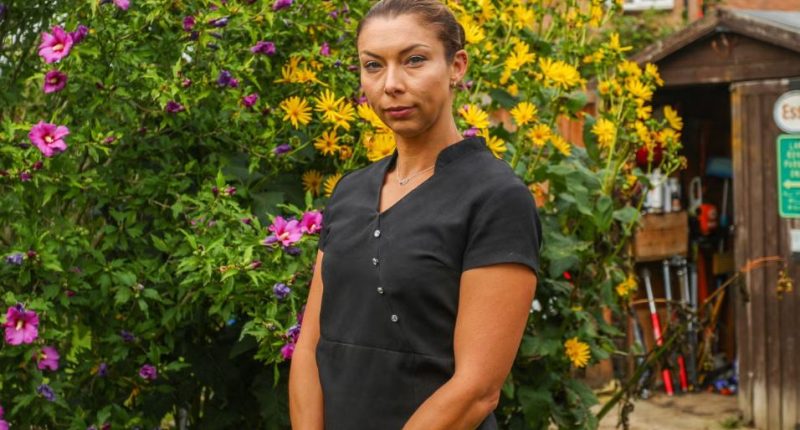A SCAM victim burned down her old office to make way for a new one – but it was never delivered.
Lucy Fletcher, 46, forked out £3,600 for a purpose-built shipping container office.
The beauty therapist spotted the listing on Facebook Marketplace and exchanged messages and phone calls.
She also received official looking invoices on business headed paper from the man.
However, the office was never delivered and her bank said they would only refund half the amount.
Adding fuel to the fire, Lucy also burnt down her old office to make room for the new purchase.
Read more Money News
She said: “I feel really vulnerable now – this guy now has my address, he’s had a lot of my money and I’ve lost out on work, so I’ve lost business as well.
“It was just how professional the scammers were – I had no reason to doubt any of it at all.
“The emotional stress has been unbelievable. It’s been an absolute mess.
I literally burned down my existing salon to make space for the container.
Lucy Fletcher
“If I’ve been scammed – and I think I’m quite switched onto it – if other people aren’t already then they need to be more aware basically.”
Most read in Money
Before Lucy handed over the cash, Santander called her to make sure she was happy to go ahead.
Lucy confirmed she was – but she feels the bank should have helped her more with checking the legitimacy of the business.
A spokesperson for Santander said: “Our fraud prevention measures detected that this transaction was potentially fraudulent and blocked the initial payment.
“However, following a phone conversation with Mrs Fletcher the payment was completed.
“We have thoroughly reviewed this case and in line with the Contingent Reimbursement Model (CRM) Code, given the specific circumstances, have offered to reimburse half of the money lost to Mrs Fletcher.”
It comes after a Co-op customer has said he feels demoralised after his £100,000 life savings vanished from his account.
Pensioner Paul Henderson, from Glen Parva, Leicestershire, believes he was “scammed” out of his money.
He received three phone calls claiming to be from the bank’s fraud department on December 13.
How to spot a scam and what to do if you’re a victim
According to the Co-op, telephone-based impersonation scams are becoming more commonplace.
If you divulge sensitive information about your account you could find it taken over by criminals.
A fraudster could call you up and pretend to be a member of staff, say, from the bank’s fraud department or customer services.
They might say a fraudulent payment has been made from the account and they need to authenticate them before the issue can be resolved.
The scammer will then ask for personal, financial or bank account security details in order to gain access to the account online and potentially clear the entire account out of any funds.
To do all of this, they need the one-time security passcodes that the bank sends to customers, so they will manipulate and coerce the customer into revealing those codes.
How to stay safe
Never share any one-time passcodes or any of your passwords or other security codes with anyone – including anyone claiming to work for your bank.
Never agree to authorise a transaction that you have not physically made yourself in online banking.
Do not agree to download software or an app onto your device that allows someone to access it remotely
Do not to trust the caller display on your phone to verify a caller. Fraudsters can easily manipulate this.
Simone Fox, director of specialist services at The Co-operative Bank said: “We are doing all that we can to keep our customers safe, but we are seeing criminals becoming more sophisticated in their approach to scams, even going so far as to impersonate members of staff.
“We are asking our customers to remain vigilant and never trust anyone who makes an unsolicited call asking them to disclose any passcodes.
“I cannot stress enough that no member of staff at the bank will ever ask you to divulge any codes sent to you for verification purposes.”
If you think you have been a victim of a scam, you should report it as soon as possible.
There is no guarantee you’ll get your money back, but banks will often compensate you if you can show you did not know the money would leave your account.
You can forward scam emails to [email protected] and should also contact your bank and report it to Action Fraud, which will give you a crime reference number.
Check if your bank is signed up to the voluntary APP code, which indicates it has pledged to reimburse customers who have been tricked into sending money to scammers.
If your bank is signed up and refuses to refund you, you can complain and ask it why it is not abiding by the code.
You may be able to report the case to the Financial Ombudsman Service, which could order your bank to compensate you.










